Estate planning is crucial for protecting your assets and ensuring your wishes are carried out after you pass away. This guide will help you understand the importance of estate planning, identify your specific needs, and find skilled attorneys near you. We’ll cover key aspects of the estate planning process, including investment strategies, handling divorce situations, adoption considerations, inheritance planning, and options for charitable organizations. By the end of this article, you’ll have a clear roadmap for creating a comprehensive estate plan tailored to your unique circumstances.
Key Takeaways
- Estate planning is crucial for managing assets and ensuring proper distribution
- Regular updates to estate plans are essential to reflect life changes and legal updates
- Collaborating with experienced attorneys helps create comprehensive and effective estate plans
- Clear communication with beneficiaries is important to prevent conflicts and misunderstandings
- Evaluating an attorney’s credentials and experience is vital when selecting estate planning representation
Understanding Estate Planning and Its Importance

Estate planning is a crucial process for managing assets and ensuring their proper distribution. This section explores key components of effective estate plans, benefits of early planning, common misconceptions, and the role of estate planning attorneys McNeal Law. Understanding these aspects can help individuals create comprehensive plans that address various scenarios, including accidents and the need for legal guardians or do-not-resuscitate orders.
Key Components of an Effective Estate Plan
An effective estate plan comprises several key components that work together to protect assets and ensure proper distribution. These elements include a well-drafted will, durable power of attorney, healthcare directive, and potentially trusts. A comprehensive plan also addresses insurance policies, including life insurance, to provide financial security for beneficiaries. Individuals in the East Bay area seeking guidance on these matters can benefit from consulting a trust and estate attorney near them, as law firms specializing in estate planning can offer tailored advice for complex situations.
Benefits of Early Estate Planning
Early estate planning offers numerous benefits, including protection against unforeseen events such as injury or incapacitation. By establishing a comprehensive plan, individuals can designate a fiduciary to manage their affairs and ensure their wishes are carried out. Estate planning and proper documentation, such as deeds and healthcare directives, can prevent legal complications and minimize the need for costly advertising during probate proceedings. Additionally, early planning allows for strategic asset distribution, potentially reducing tax liabilities and maximizing the value passed on to beneficiaries.
- Protection against unforeseen events
- Designation of a fiduciary
- Prevention of legal complications
- Strategic asset distribution
- Potential tax liability reduction
Common Misconceptions About Estate Planning
Estate planning lawyers in Rhode Island often encounter common misconceptions about the process. Many individuals believe estate planning is only for the wealthy or elderly, overlooking its importance for all adults. Others mistakenly assume that a simple will suffices, neglecting crucial elements like tax law considerations or the potential need for conservatorship. Estate planning attorneys near you can provide accurate information to dispel these myths and help create comprehensive plans tailored to individual circumstances.
The Role of Estate Planning Attorneys in Your Estate Plan
Estate planning attorneys play a crucial role in creating comprehensive estate plans tailored to individual needs. These legal professionals, such as estate lawyers in New York, possess the expertise to navigate complex trust and will laws, ensuring that clients’ assets are protected and distributed according to their wishes. By conducting thorough research and staying updated on current legislation, estate planning attorneys can provide valuable insights on cash management, tax implications, and strategies for wealth preservation. Finding skilled estate lawyers in your area is essential for developing a robust estate plan that addresses unique circumstances and safeguards your financial legacy.
Identifying Your Estate Planning Needs

Identifying estate planning needs involves assessing assets and liabilities, determining estate goals, considering family dynamics, and planning for potential incapacity. This process requires a comprehensive checklist and often benefits from the expertise of a trustee, estate planning attorney, or real estate lawyer. Effective wealth management strategies can be developed by carefully evaluating these factors.
Assessing Your Assets and Liabilities
Assessing assets and liabilities forms a crucial step in estate planning. Estate attorneys and trust lawyers assist clients in cataloging real estate holdings, financial accounts, investments, and personal property while identifying outstanding debts or obligations. This comprehensive evaluation enables individuals to make informed decisions about asset distribution, tax exemption strategies, and potential impacts of marriage on their estate. Real estate lawyers in the area can provide valuable insights into property-related matters, ensuring all assets are properly accounted for in the estate plan.
Determining Your Estate Goals
Determining estate goals involves careful consideration of various factors, including asset distribution, tax avoidance strategies, and potential Medicaid planning. Estate planning attorneys near clients in the United States can provide valuable guidance on crafting effective plans that align with individual objectives. These professionals can advise on gift-giving strategies to reduce estate taxes and ensure smooth asset transfers to beneficiaries while navigating complex legal requirements.
Considering Family Dynamics and Heirs
Estate planning attorneys consider family dynamics and potential heirs when crafting comprehensive estate plans. The executor plays a crucial role in managing the estate and distributing assets according to the plan. Considerations for disability and potential expenses associated with long-term care are essential aspects of the planning process. Proper accounting and involvement of a trusted company can help ensure transparent management of assets. Estate planning professionals assess these factors to create tailored strategies that address unique family situations and minimize potential conflicts:
| Aspect | Consideration |
|---|---|
| Family Dynamics | Assess relationships and potential conflicts |
| Executor Selection | Choose a trustworthy individual or company |
| Disability Planning | Include provisions for long-term care |
| Expense Management | Account for potential costs and taxes |
| Asset Accounting | Ensure transparent and accurate record-keeping |
Planning for Potential Incapacity
Planning for potential incapacity is a crucial aspect of estate planning that requires careful consideration. Trust and estate planning attorneys near clients can assist in creating comprehensive strategies to address scenarios such as temporary or permanent disability. These plans may include establishing a health savings account to cover medical expenses and designating a trusted individual to manage property and financial affairs through a durable power of attorney. In some cases, mediation may be necessary to resolve disputes among family members regarding incapacity planning decisions. Individuals in Jersey and other locations should consult with experienced estate planning professionals to ensure their interests are protected in the event of incapacity:
| Element | Purpose |
|---|---|
| Health Savings Account | Cover medical expenses |
| Durable Power of Attorney | Manage property and finances |
| Advance Healthcare Directive | Specify medical treatment preferences |
| Living Trust | Ensure seamless asset management |
| Mediation Provision | Resolve potential family disputes |
How to Find Skilled Estate Planning Attorneys Near You

Finding skilled estate planning attorneys requires a strategic approach. This section explores effective methods for locating qualified legal professionals, including local searches, credential evaluation, client reviews, professional associations, and initial consultations. These steps help individuals secure expert guidance on trusts and estates, taxation, pensions, and other crucial aspects of estate planning, ensuring comprehensive legal advice for future financial security.
Searching for Local Estate Planning Lawyers
Searching for the best estate and will attorneys near me involves considering factors such as fee structures, expertise in income tax matters, and experience with complex estate planning tools like grantor retained annuity trusts. Potential clients should research local law firms specializing in estate planning, evaluating their payment options and areas of expertise. The following table outlines key considerations when searching for local estate planning lawyers:
| Consideration | Description |
|---|---|
| Fee Structure | Evaluate hourly rates, flat fees, or retainer options |
| Tax Expertise | Assess knowledge of income tax and estate tax laws |
| Specialized Tools | Experience with grantor retained annuity trusts and other advanced strategies |
| Payment Options | Flexibility in payment methods and schedules |
| Local Reputation | Review client testimonials and community standing |
Evaluating Credentials and Experience
When evaluating credentials and experience of estate planning attorneys, individuals should consider factors beyond basic qualifications. While services like Legal Zoom offer will and trust templates, complex estate matters often require personalized expertise. Attorneys with a strong reputation for handling lawsuits related to estate disputes demonstrate valuable experience. It’s crucial to assess their knowledge of state-specific laws, such as those governing the age of majority and advance healthcare directives, to ensure comprehensive estate planning services.
Reading Client Reviews and Testimonials
Reading client reviews and testimonials provides valuable insights into an estate planning attorney’s expertise and client satisfaction. Potential clients in Pennsylvania can assess an attorney’s ability to handle complex matters, such as 401(k) distributions and Internal Revenue Service regulations. Reviews may also offer information on cost structures and the involvement of paralegals in case management, helping individuals make informed decisions when selecting legal representation for their estate planning needs.
Consulting Professional Legal Associations
Consulting professional legal associations offers a reliable method for finding skilled estate planning attorneys. These organizations often maintain directories of qualified practitioners specializing in personal finance, family law, and estate management. By utilizing these resources, individuals can identify attorneys with expertise in handling complex beneficiary designations and money-related matters. Professional associations also provide valuable information on attorneys’ credentials, experience, and areas of specialization, enabling clients to make informed decisions when selecting legal representation for their estate planning needs:
- Access to directories of qualified estate planning attorneys
- Verification of attorneys’ credentials and specializations
- Information on attorneys’ experience in handling complex estate matters
- Guidance on selecting attorneys based on specific personal finance needs
- Resources for understanding estate management and family law considerations
Scheduling Initial Consultations
Scheduling initial consultations with estate planning attorneys is a crucial step in the legal process. During these meetings, clients can discuss their specific needs, including charitable giving intentions and document preparation requirements. Attorneys practicing in North Carolina or other states may provide insights on local laws and United States District Court procedures relevant to estate planning. These consultations offer an opportunity to assess the attorney’s expertise and determine their suitability for handling complex estate matters:
- Discuss specific estate planning needs
- Explore charitable giving options
- Review document preparation requirements
- Gain insights on local and federal laws
- Evaluate attorney’s expertise and suitability
Questions to Ask Potential Estate Planning Attorneys

When selecting estate attorneys in the area, asking pertinent questions ensures a suitable match. Inquiries about experience, fee structures, planning approaches, communication methods, and client references provide crucial insights. These questions help individuals assess an attorney’s expertise in handling real estate, retirement, and bond-related matters within estate planning.
What Is Your Experience With Estate Planning?
When evaluating potential estate planning attorneys, inquiring about their experience is crucial. Clients should ask about the attorney’s expertise in handling complex tax returns, credit issues, and tax planning strategies. Additionally, they should inquire about the lawyer’s proficiency in establishing supplemental needs trusts and drafting comprehensive power of attorney documents. These questions help assess the attorney’s ability to navigate intricate estate planning matters effectively:
| Area of Expertise | Relevance to Estate Planning |
|---|---|
| Tax Return Preparation | Ensures accurate reporting of estate assets |
| Credit Management | Addresses potential estate liabilities |
| Tax Planning Strategies | Minimizes tax burden on the estate |
| Supplemental Needs Trusts | Provides for beneficiaries with special needs |
| Power of Attorney | Ensures proper management of affairs |
How Do You Structure Your Fees?
Understanding an attorney’s fee structure is crucial when selecting estate planning services. Clients should inquire about hourly rates, flat fees for specific services, or retainer arrangements. Additionally, they should clarify how the attorney handles expenses related to asset valuation, liability assessment, and management of complex financial instruments like mutual funds. Estate planning attorneys may offer different pricing models for various services, such as website creation for digital asset management or drafting comprehensive definitions of estate components.
What Is Your Approach to Estate Planning?
Inquiring about an attorney’s approach to estate planning provides valuable insights into their expertise and suitability for specific needs. Estates attorneys often address various aspects, including personal injury considerations, Medicare planning, and healthcare proxy arrangements. Their approach may involve comprehensive strategies to prevent intestacy and ensure clients’ wishes are legally protected. Understanding an attorney’s methodology helps clients assess how well their unique circumstances, such as complex asset structures or potential legal challenges, will be addressed in the estate planning process.
How Will We Communicate During the Process?
Estate planning attorneys prioritize effective communication throughout the process to ensure clients’ health and financial security concerns are addressed. Clients should inquire about the attorney’s preferred methods of contact, frequency of updates, and availability for discussing important matters such as income changes or updates to their last will and testament. Clear communication channels help maintain attention to detail and allow for timely adjustments to estate plans as circumstances evolve.
Can You Provide References From Past Clients?
Requesting references from past clients provides valuable insights into an estate planning attorney’s experience and client satisfaction. Living trust lawyers in the area can offer testimonials from parents who have successfully protected their wealth through comprehensive estate plans. These references may include feedback on the attorney’s handling of personal injury law aspects within estate planning, demonstrating their ability to address diverse client needs. Prospective clients should consider the following factors when evaluating attorney references:
| Reference Aspect | Importance |
|---|---|
| Client Satisfaction | Indicates overall quality of service |
| Complexity of Cases | Demonstrates attorney’s expertise |
| Timeliness | Reflects efficiency in estate planning process |
| Communication | Shows attorney’s responsiveness to clients |
| Long-term Results | Illustrates effectiveness of estate plans |
The Estate Planning Process With an Attorney

The estate planning process with an attorney involves several crucial steps. Clients work with estate planning lawyers to develop customized plans, review legal documents, and implement safeguards. This process may include consulting tax advisors and considering life insurance trusts. Regular updates ensure the plan remains current, especially for those in states like New Jersey where laws may change.
Preparing for Your First Meeting
Preparing for the first meeting with an estate planning attorney requires careful consideration of various factors. Clients should gather relevant financial documents, including information on assets subject to gift tax and potential health care directives. It is advisable to prepare a list of questions regarding the valuation process, contract specifics, and how the attorney ensures a positive customer experience throughout the estate planning journey. This preparation enables a more productive initial consultation and sets the foundation for a comprehensive estate plan.
Developing a Customized Estate Plan
Developing a customized estate plan involves collaboration between clients and trust and estate attorneys to address specific needs and legal requirements. In states like South Carolina, attorneys consider factors such as probate court procedures and accessibility of legal documents when crafting comprehensive plans. Trust and estate attorneys may utilize secure email addresses to communicate sensitive information and ensure client privacy throughout the planning process. This personalized approach helps clients navigate complex legal landscapes while protecting their assets and wishes.
Reviewing and Finalizing Legal Documents
Reviewing and finalizing legal documents is a critical phase in the estate planning process. Trust and estate attorneys in Houston meticulously examine testamentary trusts and other essential documents to ensure they accurately reflect the client’s wishes and comply with state laws. This step enables clients to make informed decisions about their estate, including provisions for potential nursing care needs. Attorneys may use specialized software to verify document accuracy and consistency, reducing the risk of future legal challenges.
Implementing and Safeguarding Your Estate Plan
Implementing and safeguarding an estate plan involves strategic asset protection measures and policy considerations. Estate planning attorneys assist clients in establishing charitable trusts or spendthrift trusts to protect assets from creditors and ensure proper distribution. These legal professionals also guide clients through probate processes, helping to minimize potential challenges and streamline asset transfers. Effective implementation often includes regular reviews and updates to account for changes in laws, family circumstances, or financial situations:
| Estate Plan Element | Purpose |
|---|---|
| Asset Protection Strategies | Shield wealth from potential creditors |
| Charitable Trusts | Support philanthropic goals while providing tax benefits |
| Spendthrift Trusts | Protect beneficiaries from imprudent spending |
| Probate Planning | Streamline asset distribution and minimize court involvement |
| Regular Reviews | Ensure plan remains current and effective |
Scheduling Regular Updates and Reviews
Estate planning firms emphasize the importance of scheduling regular updates and reviews to ensure financial plans remain current and effective. These periodic assessments allow clients to adjust their estate plans in response to changes in their financial situation, family dynamics, or relevant laws. Inter vivos trusts and bank accounts may require modifications as circumstances evolve, making regular reviews crucial for maintaining a comprehensive estate strategy:
| Review Aspect | Purpose |
|---|---|
| Financial Updates | Assess changes in assets and liabilities |
| Legal Compliance | Ensure alignment with current laws |
| Beneficiary Review | Update designations as needed |
| Tax Strategy | Optimize for current tax regulations |
| Risk Assessment | Evaluate and adjust asset protection measures |
Maintaining and Updating Your Estate Plan

Maintaining an estate plan requires regular updates to address life events, legal changes, and evolving wishes. This section explores how child custody matters, inventory updates, and communication with contingent beneficiaries impact estate plans. It also discusses the importance of collaborating with attorneys to ensure plans reflect current wishes and insurance needs.
Life Events That Require Changes to Your Plan
Estate planning attorneys emphasize the importance of updating plans in response to significant life events. These events may include changes in marital status, the birth or adoption of children, or alterations in financial circumstances. Lawyers with extensive knowledge of estate law can guide clients through the process of modifying their plans, including updating wills, trusts, and beneficiary designations. This ensures that the estate plan remains current and reflects the client’s capacity to make informed decisions about their assets and healthcare directives.
Keeping Up With Legal and Tax Law Changes
Estate planning attorneys play a crucial role in helping clients navigate the complex landscape of legal and tax law changes. Attorneys specializing in estate planning stay informed about updates to creditor protection laws, net worth considerations, and modifications to savings account regulations that may impact estate plans. They can provide guidance on how these changes affect existing wills and trusts, ensuring clients’ estate plans remain compliant and effective in preserving their assets for future generations.
Communicating Changes With Beneficiaries
Estate planning attorneys emphasize the importance of clear communication with beneficiaries when updating estate plans. They advise clients to inform beneficiaries about changes to assets, such as mortgages, stocks, or limited liability company interests, stored in safe deposit boxes. Effective communication helps prevent potential conflicts and ensures beneficiaries understand their roles in managing the estate. Estate lawyers often recommend creating a comprehensive communication strategy that addresses various aspects of the estate plan:
| Communication Aspect | Purpose |
|---|---|
| Asset Changes | Inform about updates to property, investments, or business interests |
| Beneficiary Roles | Clarify responsibilities and expectations |
| Document Location | Provide information on where important papers are stored |
| Legal Updates | Explain changes in estate laws affecting the plan |
| Dispute Resolution | Establish procedures for addressing potential conflicts |
Collaborating With Your Estate Planning Attorney
Collaborating with estate attorneys is crucial for maintaining an effective estate plan. Regular consultations allow settlors to address changes in debt, trusts, and inheritance tax laws. Estate planning professionals can guide clients through complex legal processes, ensuring that all documents are properly witnessed and updated to reflect current wishes and financial situations.
- Schedule regular meetings with estate attorneys
- Review and update trusts and inheritance tax strategies
- Address changes in debt and financial obligations
- Ensure proper witnessing of updated documents
- Align estate plan with current wishes and circumstances
Ensuring Your Estate Plan Reflects Your Current Wishes
Estate planning attorneys emphasize the importance of regularly reviewing and updating estate plans to ensure they accurately reflect current wishes. Collaborating with a financial planner can help individuals assess their line of credit, evaluate landlord-tenant relationships, and consider any changes in their financial situation that may impact their estate. In Philadelphia, estate planning professionals assist clients in updating their plans to address evolving family dynamics, changes in asset ownership, and modifications to beneficiary designations, ensuring the estate plan remains aligned with the client’s current intentions and legal requirements.
Conclusion
Estate planning is a crucial process that requires careful consideration and expert guidance to protect assets, ensure proper distribution, and address various legal and financial aspects. Finding skilled estate planning attorneys near you is essential for developing a comprehensive plan tailored to individual needs, family dynamics, and changing circumstances. Regular updates and reviews are necessary to keep the estate plan current and effective, reflecting changes in laws, life events, and personal wishes. By collaborating with experienced estate planning professionals, individuals can safeguard their legacy, minimize potential conflicts, and provide for their loved ones with confidence and peace of mind. Contact McNeal Law Group for any questions on Estate Planning in New York.






